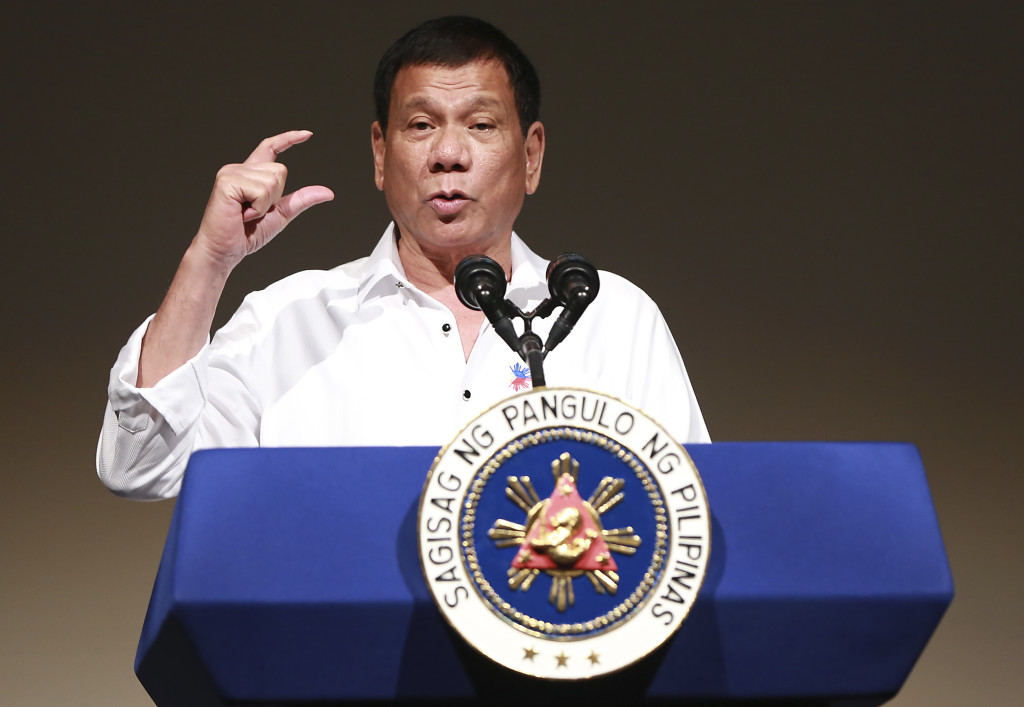
President Rodrigo Duterte. AP
Economic growth is seen staying strong in the second quarter, although global banking giant Deutsche Bank warned that investor sentiment could be dampened by uncertainty about the President’s health condition.
“Data for April and May continue to point to a robust domestic economy, with an added lift from exports and the recent pick-up in government spending,” Deutsche Bank economist Diana del Rosario said in a report on Friday.
The latest government data showed that exports jumped 16.3 percent year-on-year as of the end of May, while expenditures on public goods and services rose 6 percent in the first five months.
However, Deutsche Bank noted that “non-oil imports and remittances slowed relative to the first quarter.”
“Security concerns may have also placed a drag on travel and consumption, dampening second-quarter GDP (gross domestic product) growth,” Deutsche Bank added, referring to the armed conflict between government forces and ISIS supporters in Marawi City, which led to the declaration of martial law in Mindanao in May.
But for Deutsche Bank, the main risk to the growth outlook lies on the health condition of the country’s chief executive.
“Questions about President Duterte’s health situation, if prolonged and not fully clarified by the administration, could over time weigh on markets and growth via dampened investments,” it said.
Deutsche Bank projected a 6.2-percent GDP growth this year before rising to 6.5 percent next year, although both forecasts were below the government’s target ranges of 6.5-7.5 percent for 2017 and 7-8 percent for 2018.
Amid stable inflation, Deutsche Bank said it expected the Bangko Sentral ng Pilipinas to keep key interest rates steady in the next nine months.
“We are revising our 2017 inflation forecast to 3.1 percent, now in line with the BSP’s. We see inflation inching higher from here, to peak at 3.1 percent, as against our earlier view of 3.3-3.4 percent, within August to October. Given these developments, we no longer see the BSP raising rates for the rest of 2017,” it said.
“Following meetings with BSP representatives in June, we were also under the impression that the monetary authority is in no rush to lift rates. If anything, we believe the BSP could use this window of benign inflation to cut the reserve requirement ratio (currently at 20 percent), especially in the case wherein domestic liquidity tightens following resident capital outflows and further peso depreciation as may be triggered by continued US Fed policy normalization. This may be what the new BSP Governor had in mind when he remarked that the deceleration in consumer prices gives the BSP space to fine-tune its monetary instruments,” Deutsche Bank said, referring to BSP Governor Nestor A. Espenilla Jr.
Espenilla had said the BSP will be looking into tapping the wide range of available tools for the conduct of monetary policy, including a possible cut in the reserve requirement during an “appropriate time frame.”